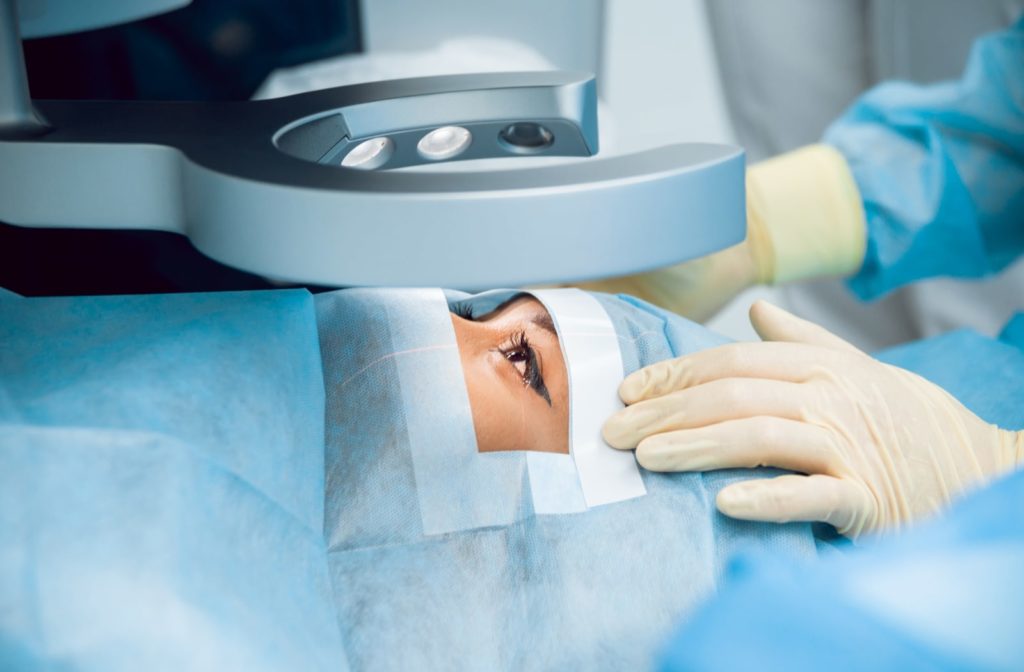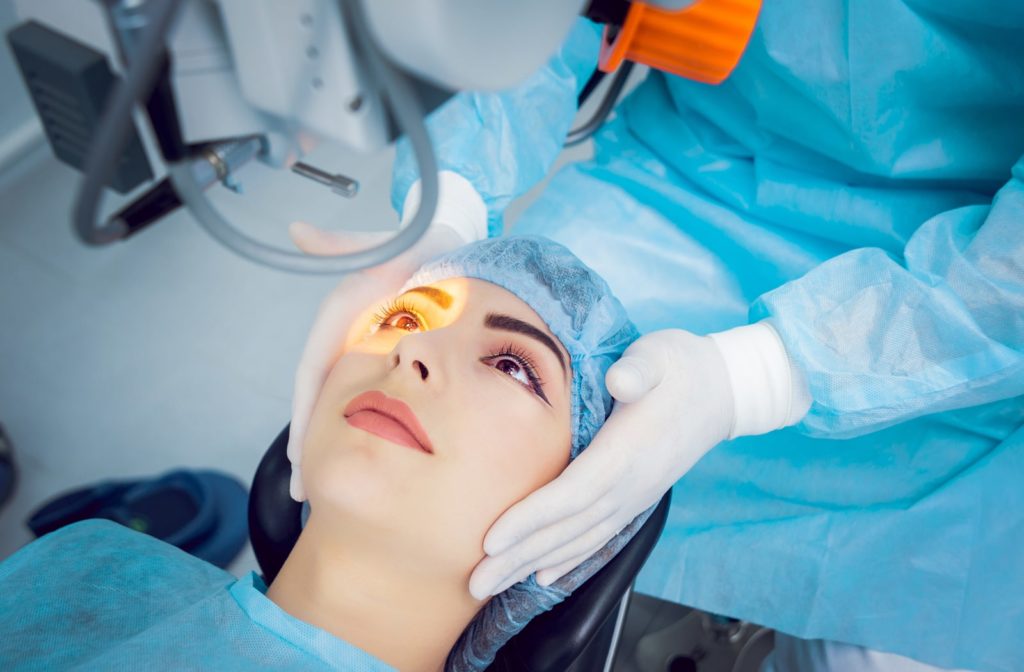Cataracts are a common eye disease in adults, affecting more than 24.4 million Americans over 40. The main threat cataracts pose is declining vision and loss of independence. In severe cases, cataracts can cause blindness.
If caught early through regular eye exams, your doctor can help you manage cataracts through stronger eyeglasses prescriptions. However, if the condition worsens, the only treatment option is surgery. Learning what cataracts are, how to prevent them, and what to expect from surgery are valuable tools for maintaining your long-term eye health.
What Are Cataracts?
Cataracts cause cloudiness in the lens of your eye. This cloudiness means your lens can’t focus the way it should and can cause blurriness and vision loss. There are different types of cataracts; however, the most common cause is aging.
Symptoms of cataracts include:
- Blurry or dim vision
- Increased light sensitivity
- Double vision in one eye
- Sudden nearsightedness
- Difficulty reading in dim light
- Seeing in shades of yellow
- Halos appearing around lights
Cataracts are most often caused by:
- Aging
- Smoking
- Alcohol abuse
- Obesity
- High blood pressure
- Diabetes
- Steroids
- Sun exposure
Cataracts are more common in adults but can occur in children. If you suspect you are suffering from cataracts, you should see a doctor for an eye exam. A comprehensive eye exam gives your doctor insight into your overall eye health and helps diagnose cataracts and other eye diseases. If the condition is severe, your doctor will recommend cataract surgery to remove it.
How Does Cataract Surgery Work?
Cataract surgery is the only way to clear your vision and remove cataracts effectively. Cataract surgery is one of the most frequently performed procedures in the eye care industry and is generally considered safe. Your doctor will help you understand all the risks before proceeding.
How to Prepare for Surgery
Before surgery, your doctor will take measurements of your eye through ultrasound. These measurements build an overall picture of your eye to help your doctor create a lens implant, called an intraocular lens (or IOL).
You’ll be asked not to eat or drink anything for 12 hours before surgery. Your doctor will also ask for your medical history. If you take medications that could increase your risk of bleeding, your doctor may ask you to stop taking them before surgery.
You can usually go home on the day of your surgery, but you won’t be able to drive, so arrange a person to help you get home safely. Similarly, getting around the house will be difficult, so having somebody there to help will make your recovery easier.

What Happens in Surgery
In cataract surgery, the doctor will use eye drops to dilate your pupil. You’ll be awake during the procedure; however, you generally won’t feel anything after your doctor administers a local anesthetic. You also won’t be able to see what is happening in your eye.
There are two types of cataract surgery:
- Phacoemulsification cataract surgery is the most common type of cataract surgery. It involves a small incision on the lens to access the cataract. Your doctor uses high-frequency ultrasound waves or lasers to break up the lens, then suctions the fragments and replaces them with your IOL.
- Extrascapular cataract surgery involves a larger incision that allows your doctor to remove the lens in one piece. This surgery is an option if the cataract is too dense for the phacoemulsification technique.
What to Expect After Surgery
Most of the time, you can go home on the day of your surgery. Full recovery from cataract surgery can take up to 8 weeks, but you can go back to your everyday activities 1-2 days afterward. In the days following your procedure, you may experience:
- Itchy eyes
- Blurred vision
- Eye discomfort
- Watery eyes
- Light sensitivity
In the weeks following surgery, you should avoid touching your eyes, excessive sun exposure, and strenuous activity that might cause eye injury.
Part of Your Eye Health
While surgery is the only way to remove a cataract, there are other ways you can prevent them:
- Wear sunglasses & a hat
- Quit smoking
- Drink in moderation
- Eat healthy foods & maintain a healthy weight
- Use brighter lights at home & work
Cataracts are a preventable eye disease that you can take steps to avoid. Regular eye exams are a great way to help your doctor understand your eye health and spot any conditions like cataracts early.



